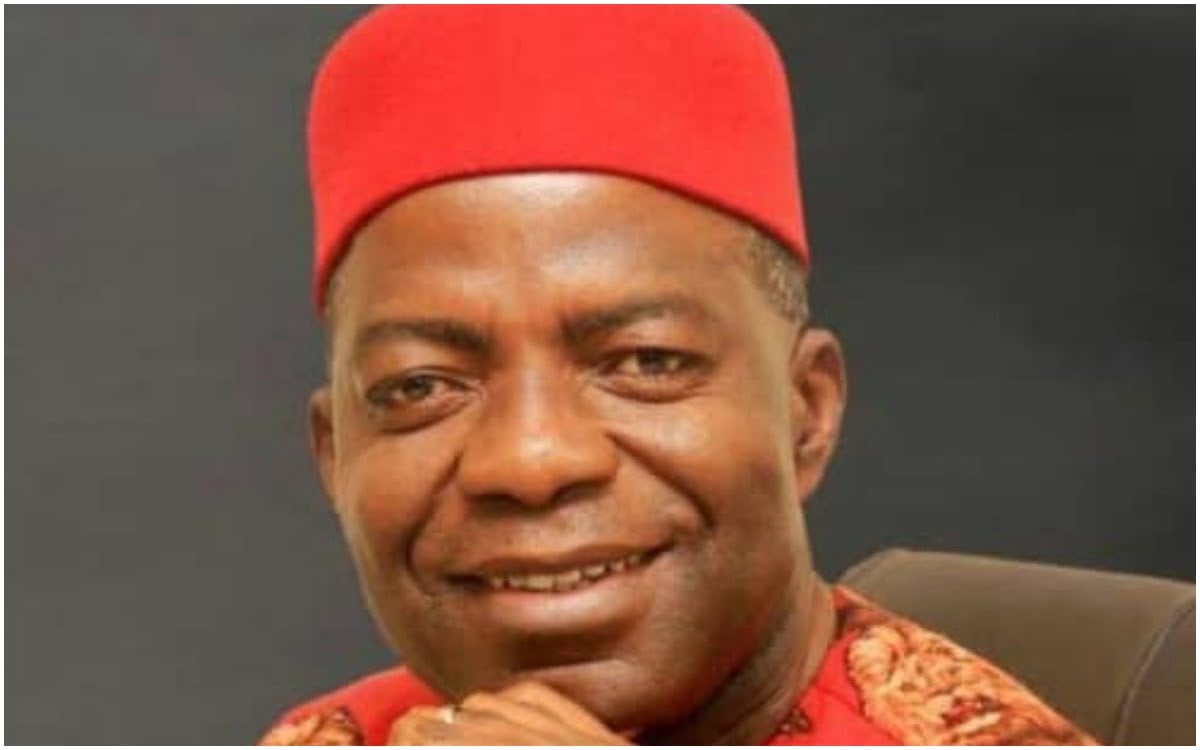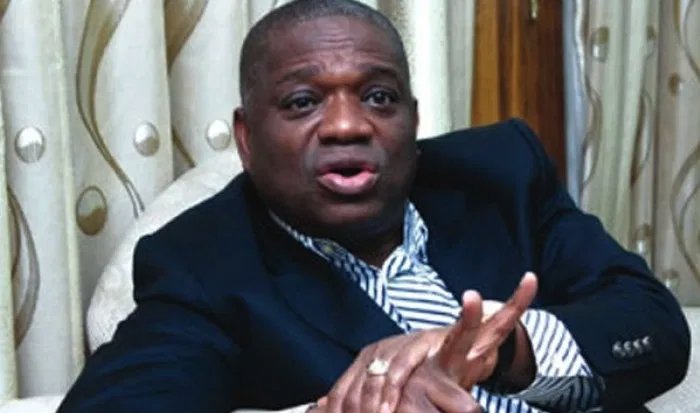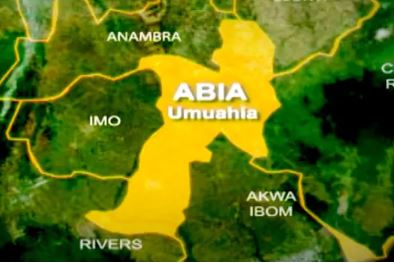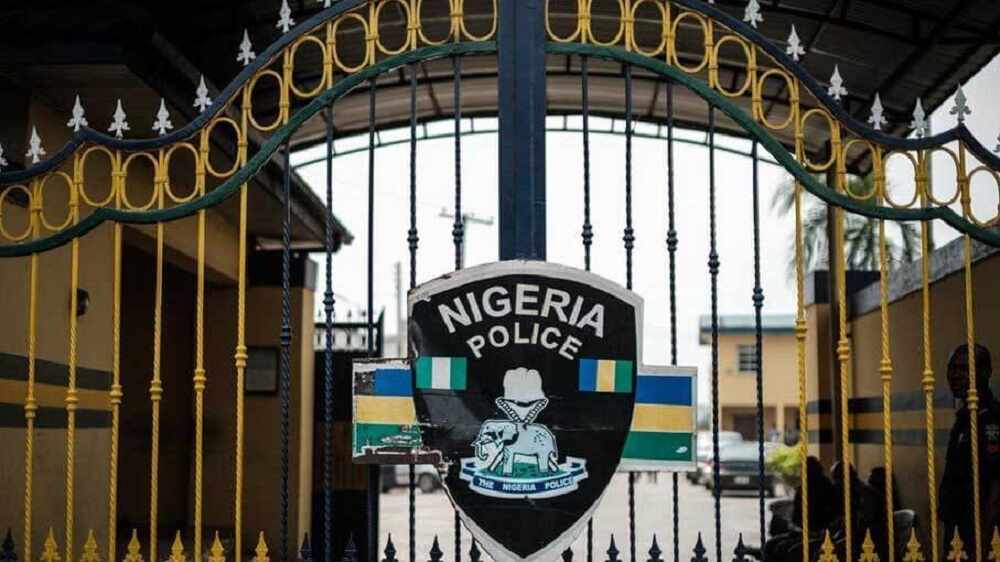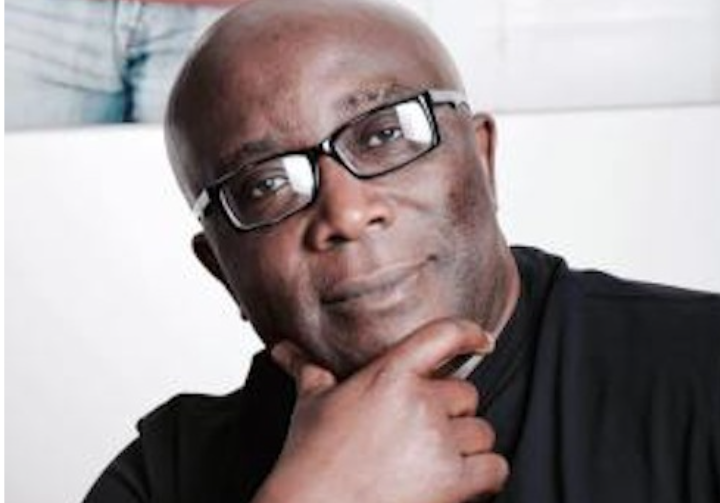Adapted and excerpted from a Keynote Address at the 2025 Abia Think Tank Annual Lecture at the Lagos Country Club, Ikeja, on 1st March.
Born in a dictatorship and nurtured under a fledgling but untidy democracy, Abia state has had a tortuous encounter with statehood. Its citizens have hardly found cause or space to celebrate their sovereign rights let alone savour the entitlements that make citizens in a democracy proud and confident.
On the contrary, Abia people have for over 24 years tumbled from one season of state capture to another. Democratic transitions have been for these people more of ritual migrations from one imperial rule to a feudal oligarchy, from one depressing season of exploitation to a more humiliating fanfare of deception in the name of governance. True, all manner of miscreants have come and gone, claiming electoral mandates that remain unverified. Extremely poor people have been frightened off the bad roads by authorized hooligans blaring sirens with accompanying goons with horsewhips and assault riffles.
However, in the more recent period since after the 2023 governorship election, Abia has witnessed an unusually positive frequency of media mention than in the over two and half decades of its previous existence. On balance, good news from Abia has far outweighed bad news.
We need to put in context what the state witnessed for a whole two and half decades prior to 2023. In the period between 1999 and 2023, Abia state was an unusual political experience among the states of the federation. While it was guided and governed by the the Nigerian constitution, Abia operated more like a feudal enclave and unregulated extractive colony with peculiar characteristics.
- It was synonymous with the name of whatever governor was in power as if it was a private estate.
– Its most enlightened and illustrious citizens were consciously excluded from its governance and mostly lived and earned their living outside the state. The state economy was so privatized that the commanding heights were cotrolled by the imperial governor, his family and cult of friends.
- Over the 24 year period under reference, the quantum of resources that accrued to the state from both the Federation Account and Internally Generated Revenue was not matched in any way by the volume or tempo of development in the state.
– Even in the small area of the South East, Abia developed more negatively than all the other states in the region.
- In the same period, an annual Google search of the economy of the state indicated that in each of tthose years, of the five richest people in Abia State on a year-on-year basis, three at the top of the list coincided with the most prominent political figures.
The inevitable conclusion therefore is that for whatever reason, Abia was essentially a feudal enclave for 24 years (1999 to 2023) and has only been struggling to free itself from feudal captivity since after the 2023 governorship election. Between 1999 and May 2023, the state does not qualify as a democratic sub sovereign part of the Nigerian federation. Politics and the democratic process were only deployed as instruments for state capture by different factions of the Abia political elite. Once captured, the state in each of these years was run more like either a private feudal enclave or an unregulated extractive colony.
As in a feudal dominion, Citizenship rights were in abeyance while citizen expectations of the good life were limited by the extent of the interests of the feudal oligarchy. The indices indicated a drastic deviation from the requirements of a democratic state. The rights of the citizens to fair treatment were grossly violated. The entitlement of the people to good government in terms of healthcare, education, security , infrastructure and emoluments could not be guaranteed.
The governor was more of an emperor ruling above criticism and reproach. In 24 years, no Abia governor was taken to court by a citizen on account of rights infringement or acts of misgovernance. Like feudal emperors, our successive governors were more of imperial feudal overlords.
The machinery of state was ‘privatized’ as the separation of powers was observed mostly in default. The legislature ran the errands of the executive governor and seemed to have a duty to pass legislations ‘for’ the governor routinely. The legislations that rolled out of the State House of Assembly were more of feudal decrees and imperial edicts than debated laws of a democratic assembly.
The judiciary had no independent voice as judges owed their appointments, promotions and general welfare to the benevolence of the imperial governor. Officials of the state judiciary were selected and hired on the basis of loyalty to the governor and the party cabal in power.
In the public service, corrupt officials kept their jobs for as long as they knew on whose behalf they were eroding the state. Another way of putting this is to say that state officials were agents licensed to commit acts of criminal malfeasance on behalf of the presiding emperor governor.
Quit routinely, the imperial governor set up and empowered an assortment of task forces and mobile courts to collect sundry revenues and levies in the name of the state but account to no institution of public accountability. Public accountability was mistaken for creative accountancy.
From available records, between 1999 and 2007, the Governor’s Office issued and signed off on newspaper full page advertisements of the state’s financial statement compiled and “audited” by the same Governor’s Office. In other words, the governor authorized expenditure, spent the money, ‘accounted’ for it, audited the expenses and informed the public accordingly that the audit had been certified!
Yet the same government had in its pay roll an Accountant General, an Auditor General and could easily have hired an external audit firm to look through its accounts. The regimes that followed were not so gracious. They rendered no accounts, had no public procurement routines that I am aware of nor bothered with the finer points of public accountability. They did what comes to thieves naturally: they kept silent on matters of financial accountability!
Rightly regarded, Abia in the years of feudal captivity could not be described as a feudal enclave, even one in desperate disrepair. It was not also an extractive colony. In a feudal estate, the manorial overlord cares about the state of the agricultural land, the welfare of the farm hands and the productivity of the feudal enterprise. Similarly, in an extractive colony, the extracting authority may have the minerals and produce as his primary target. But he also realizes that the magnitude of his loot is a function of the state of the colony.
Under the colonial dispensation in Nigeria, for instance, it was in the best interest of the colonial enterprise to run an efficient railway system to evacuate the produce, maintain schools for the colonized to get educated, keep them healthy through health centres and generally maintain law and order through courts that dispensed justice according to colonial law.
In the Abia state in the years under feudal capture, the governments failed as both a badly run feudal enclave and as a dysfunctional extractive colony. The state failed as a government. It failed as an organized criminal cartel. It failed its people, failed itself as an organized syndicate of enlightened thieves (“there is honour even among thieves”, it failed the nation and failed the concept of democratic sovereignty.
Therefore, the question that Abia needed to answer with the outcome of the 20223 governorship election was simple: would the state correct course and return to the path of responsible democratic governance or continue as a feudal enclave under the captivity of a political oligarchy.
The picture of the state on the eve of the governorship election in 2023 was sad and almost tragic. Abia was easily the most indebted state in the federation with a debt portfolio of over N189.9 billion. The then government that ratcheted up most of this debt inherited only a debt of about N35 billion from its predecessor.
On the eve of the election, Abia was the state with the longest period of default in the payment of the salaries of staff in the public sector especially education and health. Doctors and teachers were owed anywhere between 24 to 30 months in salary arrears. The state university ran consistently on upwards of an average of six months in arrears of salaries and allowances of staff. The state polytechnic at Aba was in default of salaries and allowances to the tune of over 30 months. The state polytechnic had virtually lost its accreditation. Unpaid academic and administrative staff supplemented their livelihood as Keke and Okada riders or petty traders in inconsequential merchandise.
Doctors in government health institutions went without salaries almost indefinitely. The sick no longer bothered to go to any of the state’s general hospitals or health centres knowing well that they were likely to come out feet first. Drug prescriptions are worthless since most pharmacies in state hospitals had a permanent sign on display: “OUT OF STOCK”.
The city of Aba was in decay. Drainage was absent. Sewage system was unheard of. Aba was literally an inhabited refuse dump. Mounds of refuse greeted the eyes at nearly every inch of the city which had a permanent stench of something dead. Most roads in the town were in desperate disrepair. Some people had forgotten when some of these were roads as many had become deep gullies and waterways. Adjoining the many dilapidated roads were one or two uncompleted flyovers that the state government had been building and commissioning in bits for the better part of the last couple of years.
The sorry state of Abia state then was inscribed boldly on the faces of most citizens. People were hungry, angry , poor, unkempt, aggressive and viciously frustrated. Hope and optimism were the most scarce commodities in Abia by May, 2023.
What the state needed urgently was not just a new occupant of whatever government house there was in Umuahia. What the state needed was a transformative leadership to rescue the state from feudal captivity and restore the social contract between the government and the people. The task was to make political power translate into the welfare of the people, and redefine the political space in terms of the real needs of real people .
Since the inception of the Otti administration, governance has been essentially about reestablishing trust, inspiring confidence and renewing hope in the state.
From reports of public response to the efforts of the Otti government so far, people were initially a bit hesitant to embrace the modest achievements for fear that excitement could end up in a return of the betrayal of past decades. Two and half decades of serial betrayal and habitual disappointment have frightened people from something called government. Worse still, the long period of bad experienced has deepened the distrust to the degree that when people began receiving their emoluments as and when due, they said it was “419” and did not quite believe it. When street lights came back on in Aba, people were frightened for fear it might be a bad dream or ill omen.
Alongside the confidence rebuilding process, the government has proceeded with modest efforts to managing the state’s economy better and to address the scandalous infrastructure decay. From the reports since the last year and half, there is reasonable progress.
We have read the pleasant stories about the inauguration of the Aba power project by Geometrics Ltd leading to a commendable level of power supply, a plus for a place that depends on constant power to operate its small to medium manufacturing establishments. Courageous urban renewal effort has proceeded with the clearing of refuse, reconstruction of some dilapidated roads.
In tandem, I understand that a series of micro credit and small business support programmes are being instituted to empower the people and reignite the latent entrepreneurial power of the state
I also understand that public sector workers like teachers and civil servants have begun receiving their emoluments regularly. So also have retirees and pensioners. The cries of anguish that used to emanate every month from relations in the villages have subsided and been replaced by good wishes and prayers that the good days should persist.
However, there is an urgent need for caution. The social contract is not just about roads, bridges, drainages and street lights. It is about restoring the democratic essence of the sovereign state. Democracy was never defined as a system of landscape decoration. While citizens in a truly democratic state expect efficient social services and infrastructure, they expect a sense of ownership of the state and the restoration of rights.
That reversal of direction and rescue from feudal oligarchy is the legacy that th The politicak struggle ahead in the state is all about whether the feudal tradition will be allowed to return or not. The struggle ahead in Abia state is not just the retention of power by one clique or faction of the Abia political eiite. It is not about which party retains the key of the uncompleted Government House in Umuahia.
The current administration will be missing the point if it limits its battle for political survival to the survival of the party in power. It is more. It is a protection of the fundamental rights of the people to own the government of their choice. It is the protection of the rights of people to receive regular salaries, to demand and get good healthcare, sensible education, reasonable infrastructure that works and the freedom to challenge the government if they feel that the affairs of the state are not going well.
Let there be no mistake about it. The feudal state in Abia served certain interests. It was about growing and sustaining an unproductive financial oligarchy in the name of politics. It was about continuing to grow a criminal tradition in government. That gang is still intent on returning to power. They will invoke all manner of crude methods and tools to return to power. Huge money, Violence, blackmail, thuggery, judicial antagonism weaponization of sectionalism in order to upturn the new order.
The current opposition that is building up in the state is an attempt to recapture the state and re-entrench the feudal order. At the partisan level, it is a battle for familiar partisan supremacy through alignments and alliances for electoral prevalence. But the battle for power and supremacy in Abia in the years ahead is a battle for the hearts and minds of the people of Abia.
Beyond rescuing Abia state from feudal captivity, the state needs to claim a position of leadership in the Nigerian federation. We have an unusual endowment as a people. Our entire populace is intrinsically entrepreneurial. We are an informal school of native capitalism. You do not need to teach the Abia man, woman or child how to become a trader, a provider of goods and services and how to grow wealth.
The challenge of the moment is to harness the natural potential of Aba into a regional trade and manufacturing potential. Abia needs to become a hub for made in Nigeria small to medium scale manufacturing. The position of the state on the north-south rail link and the intersections of federal highways from the South West to the Eastern heartland needs to become a logistical asset linking the state from the sea in Port Harcourt to the vast demand fields of the northern hinterland.
Above all, Education must remains the priority export of the state to the nation. But in today’s world, the emphasis must go beyond conventional classroom chalk and black board teaching and learning. Abia must aspire to lead the nation in the new digital learning. We must invest in manpower for tomorrow and leapfrog our education to prepare citizens for the new world of information technology and Artificial Intelligence. One strategy is to embark on continuous teacher education through in- service training every vacation. Ultimately, the average Abia school teacher at every level must by law hold a minimum of a university first degree. Illiterates cannot train the work force of the future. Those from other states who want to teach in the Abia schools system in the future must meet a higher certification requirement if we must lead the nation towards the future.
The beckoning challenge of the new ABIA is to leap from the dark ancestry of superstitious origins to the brilliant light of new modern beginnings. There is no need to wait. Taiwan did not wait. Singapore did not wait. Malaysia did not wait. Nor did South Korea or even Dubai. Rwanda is not losing a second either.

